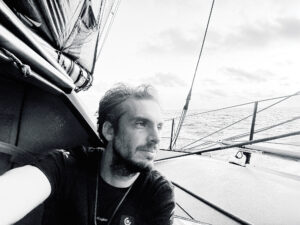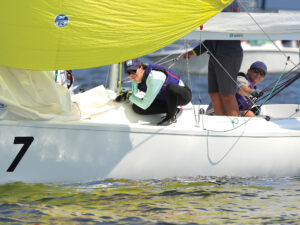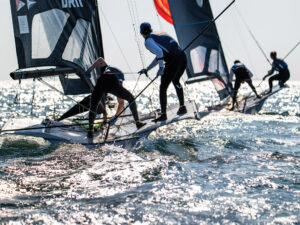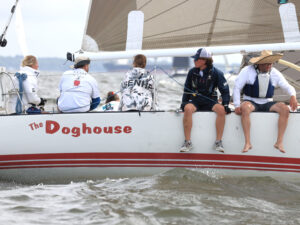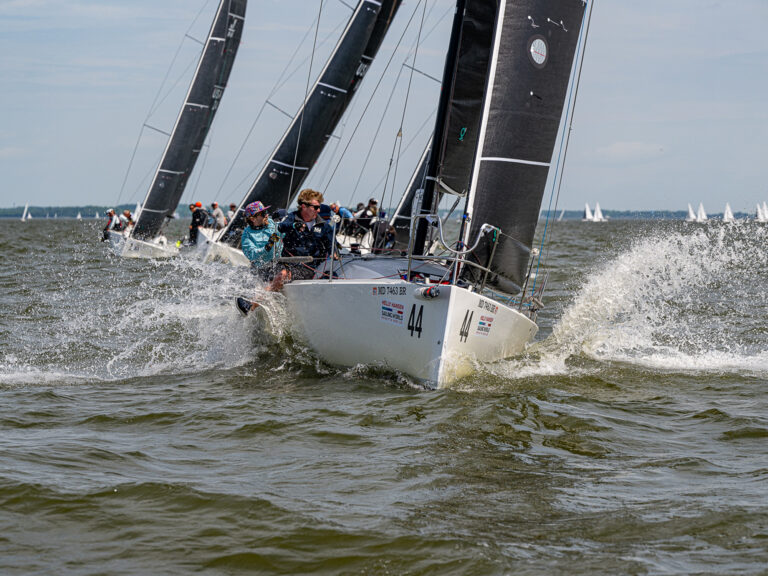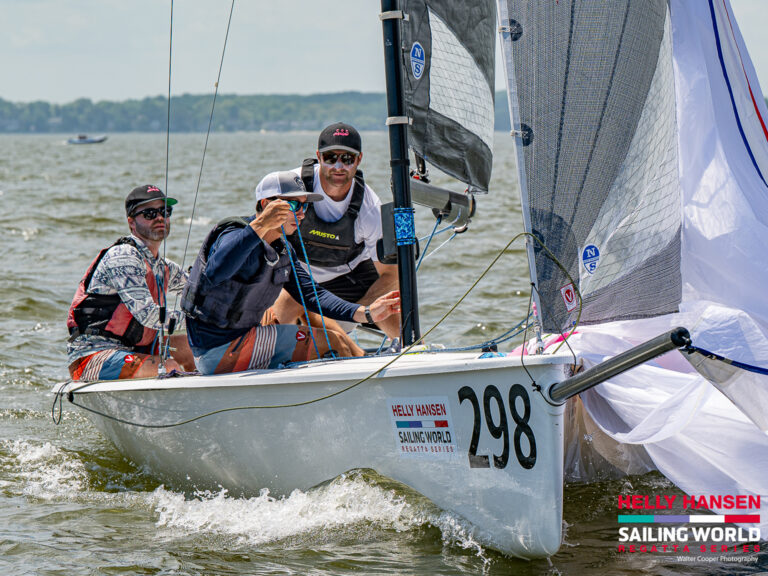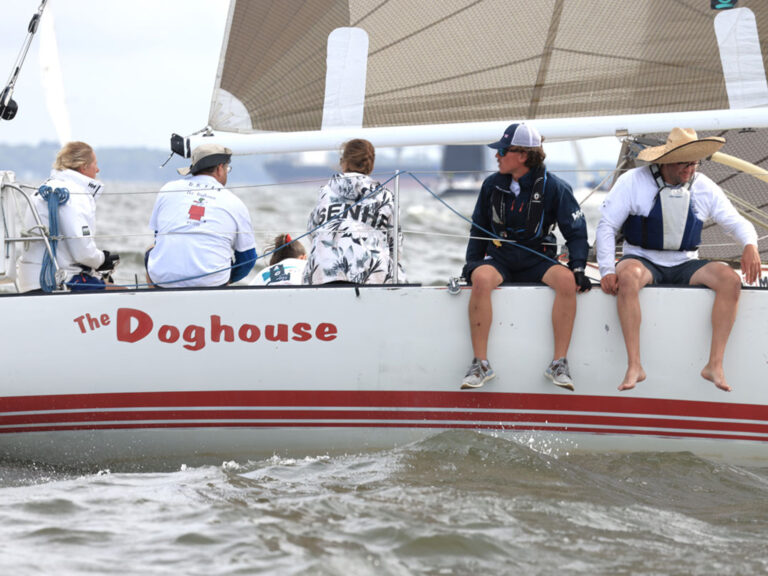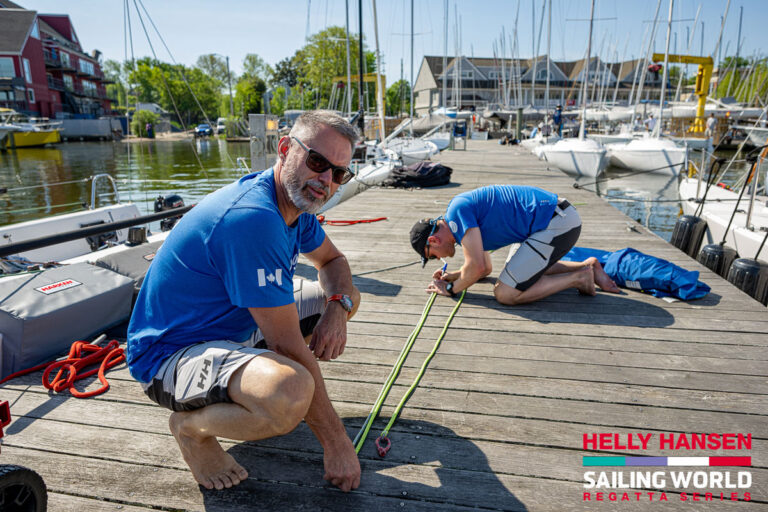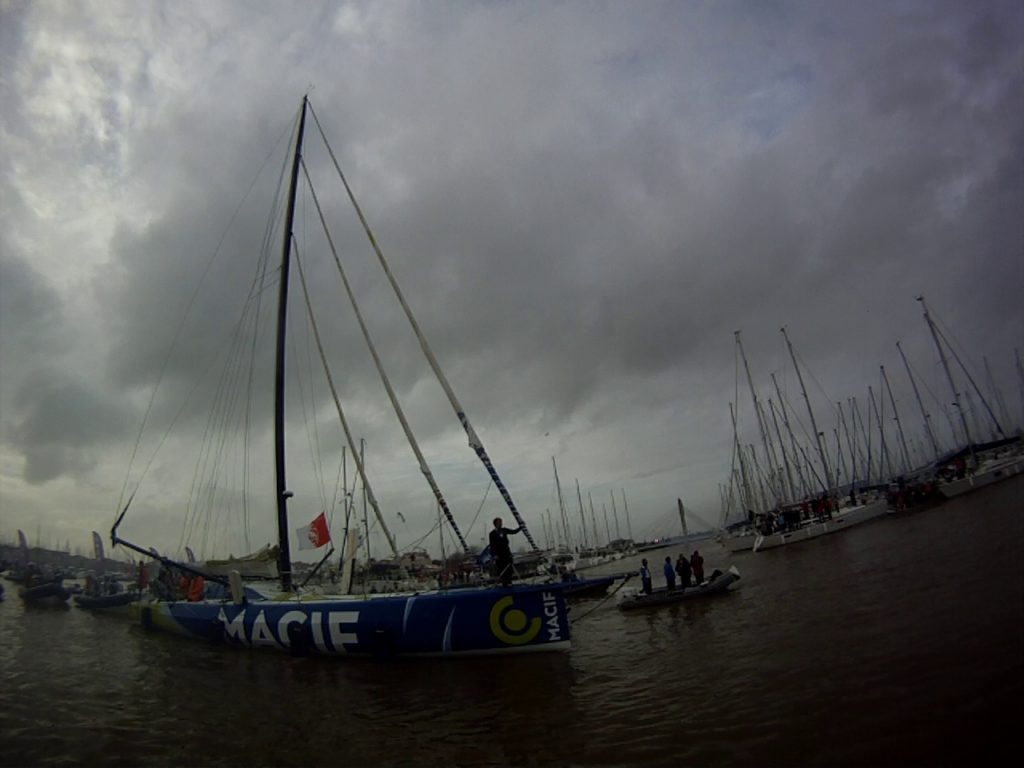
Gabart wins Vendee Globe
Francois Gabart was just a few hundred yards away from becoming the youngest sailor of all time to the win the Vendée Globe. He was also just about to beat Michel Desjoyeaux’s record by sailing around the world in 78 days and two hours, while averaging 15.3 knots over the 28,647-mile long solo trek. But you would not know that by watching him Sunday afternoon as he grinded the winch one last time and studied how the sail was reacting, as methodically and carefully as if he were still out in the middle of the Indian Ocean alone. He retained his cool composure until the very end, letting out a shout of joy only after he crossed the line and began taking the sails down before heading to port. There, hundreds of thousands of mostly French aficionados had waited in the cold and damp weather for most of the day, just to get a glimpse of the “golden boy” as they call him here, using the English world.
Gabart later said he knew he couldn’t be too careful and vigilant during the entire time when trying to maintain his slim lead over Armel Le Cléac’h (Banque Populaire) after Cape Horn. Between a collision, a major breakage, or any other kind of accident that can decimate the fragile IMOCA-class boats, Gabart knew the risks of not only losing his lead, but even completing the race, remained high.
A case in point is how just a few days ago Jean-Pierre Dick (Virbac-Paprec) heard a loud crack when approaching the Azores, which he would later find out, was due to his keel coming apart, ultimately forcing him to retire from the race. Marc Guillemot’s Safran also suffered major keel damaged due to a structural flaw at the beginning of the race, forcing Guillemot to turn back just a few miles past the line.
But with Le Cléac’h pressing behind him, often at distances of less than 100 miles since firming up his lead, Gabart knew he could not let up too much, either. Ultimately, Le Cléac’h ended up making it to the line just three hours and seven minutes behind Gabart, representing yet another record as the closest finish in the history of the race.
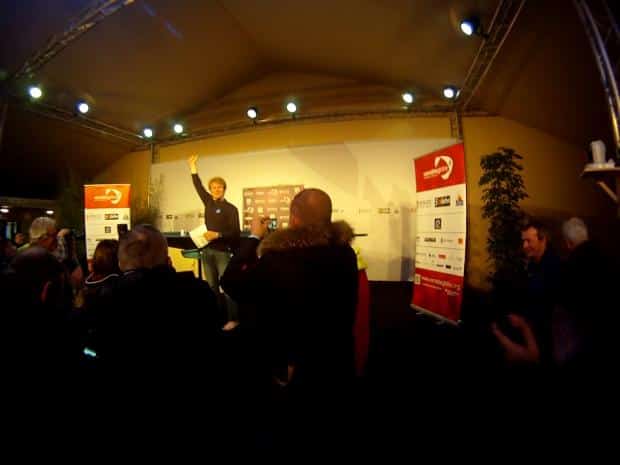
A key part of maintaining his lead without a major breakage was “knowing when to take your foot off the pedal,” Gabart said.
The night before the end of the race had been especially difficult. It was as if the Vendée held one more final and cruel test for Gabart to pass before the finish. There, in the Bay of Biscay, the conditions and wave heights of over 15 feet were enough to break a sturdier boat than that of Macif. Then, Gabart acknowledged that he did not hoist the gennaker as he might have done if he were not in the lead. But despite not pushing the envelope as much as he might have dared in different circumstances, the going remained very rough, he said.
“When the wind is blowing at 40 knots, it is then that you try to minimize the risks as much as you can,” Gabart said during the post-finish press conference last night. “When going down wave troughs at speeds of more than 30 knots, I tried to take my foot off the gas pedal a bit, but you still go down the face of the waves over and over again. You obviously need to be hyper vigilant.”
The commercial boat traffic was also a concern during Gabart’s final night on the water. “I was not as worried as much about the large ships in the shipping lanes as I was about the fishing boats. I kept my hand on the helm, ready to change course abruptly if I needed to,” Gabart said. “Commercial fisherman at work in big wave conditions in the Bay of Biscay can be more worried about keeping their boats afloat and doing their work than paying attention to a racing yacht coming towards them on their AIS.”
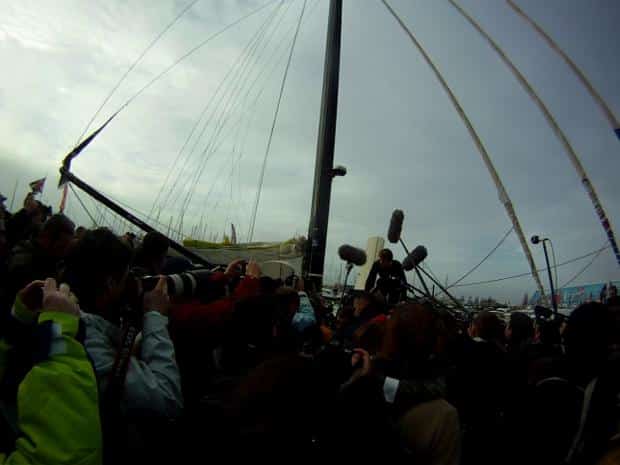
Gabart seemed to take the media attention in stride, even though he confessed a few days ago that he was apprehensive about returning to shore after living alone on his boat.
Once on shore, Gabart somehow managed to face the rush of hundreds of journalists and camera crews shoving cameras and microphones in front of him, literally smiling most of the time, after living alone for more than two and half months at sea. But that is not to say that the punishing race had not taken its toll. He described, as others have done before him, how sailing the Vendée is unarguably the most painful, stressful, and ultimately dangerous solo offshore race that any sailor can aspire to. French sailors often use the word “épouvantable,” which loosely translated, means something excessively or extremely bad, to describe what it is like to live on two hours or less of sleep per 24 hours while getting knocked around on a 60-foot steel drum that offers the same level of comfort as a prison cell does for several weeks. And like those who won the race in years past, Gabart could not say whether he was up to completing another Vendée in his lifetime during the minutes following his arrival.
But for those who are interested in taking a stab at the Vendée one day, he did say this: “You have to have the desire deep in your gut to do the race,” he said last night. “If you don’t have that and the absolute conviction that you want to do it, then this race is not for you.”
Read the transcript of Gabart’s press conference after the race here.

